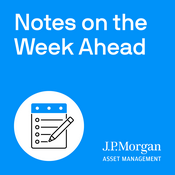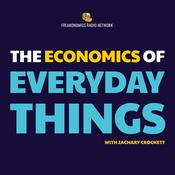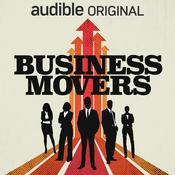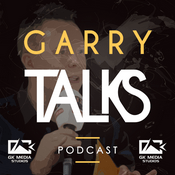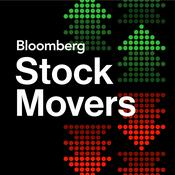22 episodes
- The Generational Divide
Gen Z/Millennials: Thinking about next weekend, immediate experiences, short-term comfort
Parents: Thinking generationally about long-term capability, financial independence, life after they're gone
Understanding this disconnect is crucial to resolving family financial conflicts
The Boomerang Generation Crisis
Over 50% of young adults 18-29 living with parents
When temporary support becomes permanent lifestyle subsidy
Main Topics Covered
1. The Real Cost of Financial Default (Timestamp: ~8:00)
Career Impact:
Employer credit checks in finance, government, healthcare, management
Professional license complications
Wage garnishment visibility to employers
Financial Impact:
Credit score damage lasting 7-10 years. Inability to qualify for mortgages, car loans, rentals.
Automatic wage garnishment (10-25%). Tax refund seizures
Collection lawsuits and judgments
Forced cash-only lifestyle
The Lifetime Cost:
Potential loss of $200,000-$500,000 in lifetime wealth
Delayed retirement savings and lost compound growth
Career opportunities lost due to credit issues
The Real Math:
$1,200/month rent-free = $14,400/year
3 years = $43,200 in subsidy
5 years = $72,000 in subsidy
4. The Control Paradox (Timestamp: ~35:00)
Enabling = Control: Constant rescue prevents authentic development
Accountability = Freedom: Stepping back allows real growth
You can't demand adult autonomy while living a parent-subsidized lifestyle
Key Questions for Listeners
For Adult Children Living Subsidized:
If your parent died tomorrow, could you maintain your current lifestyle?
What are you actually afraid of?
For Parents Considering Tough Love:
What happens to them when I'm gone?
Am I prioritizing their comfort over their capability?
Action Plan Framework
Step 1: Complete Financial Transparency
List every debt (amount, rate, status)
Document all monthly expenses
Record all income sources
Step 2: Calculate Real Cost of Living
Market-rate rent
Utilities, food, transportation
Insurance and necessities
Minimum debt payments
This is your baseline reality
Step 3: Income vs. Reality Check
Does income cover real expenses + debt repayment?
If yes: Create aggressive payoff timeline
If no: Income must increase OR expenses must decrease
Step 4: Create Specific Timeline with Milestones
Set move-out target date
No vague intentions—only measurable commitments
Step 5: Build Accountability Structure
Weekly or bi-weekly check-ins
Step 6: Execute and Adjust
The key is to START
The Two Futures
Future A: Success
5-10 years later: Independent, stable, credit rebuilt
Managing finances effectively
Future B: Failure to Launch
Parent gone, adult child 45-50 years old
Never learned the lessons when there was still time"Original Music By DreamLife""Beat By DreamLife""Produced by DreamLife" - Key Topics Covered
The Big Change
Starting January 1, 2026, workers earning over $145,000 must make catch-up contributions to Roth 401(k) accounts only
No more pre-tax catch-up contributions for high earners
This applies to anyone 50+ who earned more than $145,000 from their employer in the previous year
Understanding Catch-Up Contributions
Standard 401(k) contribution limit in 2025: $23,500
Catch-up contributions for age 50+: Additional $7,500
Enhanced catch-up for ages 60-63: Additional $11,250
These limits will continue to increase with inflation
Traditional vs. Roth 401(k) Explained
Traditional 401(k): Pre-tax contributions, immediate tax break, taxed upon withdrawal in retirement
Roth 401(k): After-tax contributions, no immediate tax break, tax-free withdrawals in retirement
The key difference: timing of when you pay taxes
Impact on Your Paycheck
Real dollar example: $7,500 catch-up contribution at 30% tax bracketTraditional 401(k): Take-home pay decreases by ~$5,250 (with $2,250 tax savings)
Roth 401(k): Take-home pay decreases by full $7,500 (no immediate tax savings)
Monthly impact: Approximately $625 less per month in take-home pay
Who's Affected?
High earners: Anyone over 50 earning $145,000+ per employer
Income threshold is per employer, not combined if working multiple jobs
Threshold will adjust for inflation in future years
Millions of American workers will be impacted
Good News for Earners under $145,000
Workers earning $145,000 or less: Nothing changes
Full flexibility to choose between traditional and Roth contributions
Still get immediate tax deduction with traditional contributions
Complete control over retirement savings strategy
Special Section: Entrepreneurs & Small Business Owners
Solo 401(k) options available for self-employed individuals
Same 2026 Roth catch-up rule applies if earning over $145,000 in W-2 wages
SEP IRA option: Up to $70,000 contribution limit in 2025
SIMPLE IRA for businesses with employees
The Silver Lining
Enhanced catch-up limits for ages 60-63 (up to $11,250 in 2025)
Roth accounts provide tax-free retirement income
No required minimum distributions during lifetime for Roth accounts
Tax-free inheritance for heirs
Key Numbers to Remember
$145,000 - Income threshold for mandatory Roth catch-up contributions
$23,500 - Standard 401(k) contribution limit (2025)
$7,500 - Catch-up contribution limit for age 50+ (2025)
$11,250 - Enhanced catch-up limit for ages 60-63 (2025)
$70,000 - SEP IRA contribution limit (2025)
$5,000 - Maximum annual startup cost tax credit for small businesses (3 years)
$1,000 - Maximum employer match tax credit per employee
Disclaimer
This podcast is for informational and educational purposes only. The host is not a licensed financial advisor, CPA, tax professional, or attorney. All content is based on publicly available information and should not be considered personalized financial, investment, tax, or legal advice.
"PRODUCED BY ALLROUNDA"
"BEAT BY ALLROUNDA"
"ORIGINAL MUSIC BY ALLROUNDA" Rising Above The Critics: How to Handle Negative Colleagues When You’ve Delivered Gold
07/11/2025 | 18 mins.Episode Description
You've just delivered an outstanding presentation—your research was thorough, your data compelling, and your delivery was flawless. But instead of recognition, you're facing a wall of negativity from colleagues. Sound familiar?
In this episode, we dive deep into how to professionally handle chronic negativity in the workplace when you know you've delivered excellence. Learn why some colleagues respond negatively to great work, and discover practical strategies to maintain your professionalism and credibility.
What You'll Learn
The psychology behind workplace negativity – Understanding why colleagues criticize excellent work
The GRACE Framework – A five-step approach to responding professionally to negative feedback
Tactical response strategies – Specific phrases for different types of negative colleagues
Long-term reputation building – How to position yourself as a consummate professional
When to escalate – Red flags that indicate you need to involve management or HR
The power of strategic follow-up – Using post-presentation communication to your advantage
Key Takeaways
Understanding the "Why" Behind Negativity
The Threat Response – Your excellence highlights gaps in their performance
The Perfectionist Trap – Can't see the forest for the trees
The Culture Carriers – Confuse criticism with intelligence
The Change Resistors – Uncomfortable with what your ideas represent
The GRACE Framework
G - Ground Yourself – Don't let their reaction make you question quality work
R - Reframe the Conversation – Transform criticism into constructive input
A - Acknowledge Without Agreement – Validate perspective while holding your ground
C - Channel Energy Constructively – Use negativity as fuel for clarification
E - Elevate the Focus – Return to shared goals and outcomes
Response Strategies for Different Personalities
The Nitpicker – Acknowledge details while redirecting to strategic direction
The Skeptic – Ask what specific conditions would build confidence
The Silent Resister – Draw out their perspective directly
The Public Challenger – Offer to address concerns in a dedicated follow-up
Action Items
After listening to this episode, try these:
Document your wins – Keep a record of positive feedback and outcomes
Identify your negative colleague type – Recognize patterns so you can prepare appropriate responses
Practice the GRACE Framework – Role-play responses before your next presentation
Build your alliance network – Cultivate relationships with colleagues who appreciate quality work
Draft your follow-up template – Prepare a professional post-presentation email framework
Resources Mentioned
The GRACE Framework for professional responses
Strategic follow-up email template
Red flags for when to escalate to management
Connect With Flexify2
Spotify
Apple Podcasts
Pandora
Social Media: Flexify2The Rate Cut Reality Check. What Powell's Pivot Means for Your Paycheck and Portfolio
11/9/2025 | 9 mins.Disclaimer: This content is for educational and informational purposes only. This is not financial advice. Always consult with a qualified financial advisor before making major financial decisions.
Key Topics Covered
🎯 What Powell Actually Said (And Why It Matters)
Powell's Jackson Hole signals: "downside risks to employment are rising"
Market reaction: Rate cut probability jumped from 67% to 88%
Fed Governor Waller's recent statement supporting cuts
📊 The Shocking Job Market Data
July jobs: Only 73,000 added (expected 110,000)
Massive revisions: May cut from 144,000 to 19,000, June from 147,000 to 14,000
3-month average plummeted to 35,000/month (down from 168,000 earlier in 2025)
🔍 For Active Job Seekers
Reality check: Market cooled but not dead
Entry-level positions hit hardest
Focus areas: Healthcare, essential services, government
Strategy: Network aggressively, consider smaller companies
💼 For Currently Employed Professionals
Companies shifting to internal development over external hiring
Perfect time to push for promotions and skill development
Rate-sensitive industries (construction, real estate, fintech, tech) may see quick relief
📈 Investment Implications
Interest-rate sensitive sectors rallying (REITs, utilities)
Growth stocks benefiting from lower discount rates
Much good news already priced into markets
International investments may become more attractive
⚠️ Risks to Watch
Risk #1: Rate cuts could reignite inflation
Risk #2: Cuts might not stimulate spending if consumers/businesses remain cautious
Risk #3: Global complications (currency swings, trade tensions)
Your Action Plan
📋 If You're Job Hunting:
Expand search to smaller companies that benefit from rate cuts
Prepare for longer search times
Focus on networking and personal connections
Consider temporary/contract work to stay active
📈 If You're Currently Employed:
Focus on skill development over job hopping
Discuss growth opportunities with your manager
Review variable rate debt situation
Build emergency fund
💰 For Everyone:
Watch key data: job reports, consumer spending, business investment
Don't make major commitments based on rate assumptions
Keep options open and skills sharp
Rate-sensitive industry workers: Position for potential upturn
Key Takeaways
✨ The Bottom Line: Fed likely to cut rates modestly on September 17th, providing economic support without creating new problems. Job market should stabilize rather than collapse, but competition remains intense through early 2026.
🎯 Success Strategy: Preparation and adaptability matter more than dramatic reactions to headlines. Focus on fundamentals: relevant skills, strong relationships, clear value proposition, and smart financial management.
🚀 The Opportunity: If rate cuts work as intended, renewed business investment and hiring could emerge by early 2026. Success goes to those prepared when that window opens.
Connect With Us
Subscribe to "Flexify2 Your Job Search Evolved!" for more career-focused economic insights and job market analysis.- Episode Summary
Ever notice how some managers treat you like you can't handle basic tasks, but then ask you to tackle their most complex responsibilities? This week we dive into the workplace contradiction that leaves employees feeling simultaneously underestimated and overburdened. We explore why this dynamic exists, how it affects workplace culture across all generations, and practical strategies for navigating these mixed messages professionally.
Key Topics Discussed
The psychology behind contradictory management behavior
How responsibility-shifting disguises itself as mentorship
The difference between genuine delegation and work avoidance
Documentation strategies for protecting your professional interests
Questions that clarify expectations and accountability
Maintaining boundaries while advancing your career
Notable Quotes
"It's not about competence. It's about accountability."
"Good managers invest in your growth and take responsibility for outcomes. Poor managers create elaborate performances where they're simultaneously indispensable and uninvolved."
"You know more than they pretend you do, and you're worth more than they act like you are."
Listener Stories
Sarah from Denver shares her experience with a manager who explained basic meeting scheduling, then immediately assigned her a major client presentation
Follow-up on the infamous "Brad" and his latest organizational contradictions
Practical Takeaways
Create Documentation: Always confirm task assignments in writing, especially when they fall outside your role.
Ask Clarifying Questions: Frame inquiries to highlight responsibility gaps without being confrontational.
Protect Your Core Role: Reference your primary responsibilities when additional tasks might compromise your performance.
Recognize the Pattern: Understanding the dynamic helps you respond strategically rather than emotionally.
More Business podcasts
Trending Business podcasts
About THE 2025 ECONOMY & JOB MARKET
Are you worried about the future of your job? With rapid advancements in technology and automation, the job market is undergoing a significant transformation. In today's Podcast, we'll explore the potential changes that might affect your profession in 2025 and beyond. From AI-powered tools to shifting industry trends, we'll dive into the factors that could impact your career and provide valuable insights to help you stay ahead of the curve. Listen until the end to discover what the future might hold for your job and how you can prepare for the changes that are coming.
Podcast websiteListen to THE 2025 ECONOMY & JOB MARKET, The Other Hand and many other podcasts from around the world with the radio.net app

Get the free radio.net app
- Stations and podcasts to bookmark
- Stream via Wi-Fi or Bluetooth
- Supports Carplay & Android Auto
- Many other app features
Get the free radio.net app
- Stations and podcasts to bookmark
- Stream via Wi-Fi or Bluetooth
- Supports Carplay & Android Auto
- Many other app features


THE 2025 ECONOMY & JOB MARKET
Scan code,
download the app,
start listening.
download the app,
start listening.












